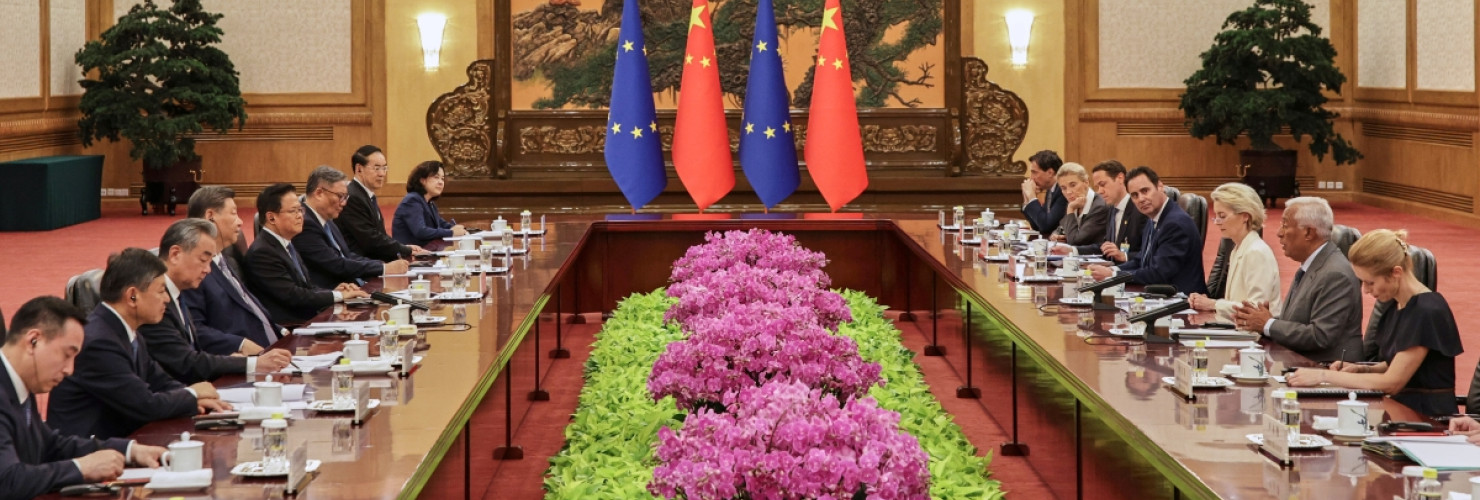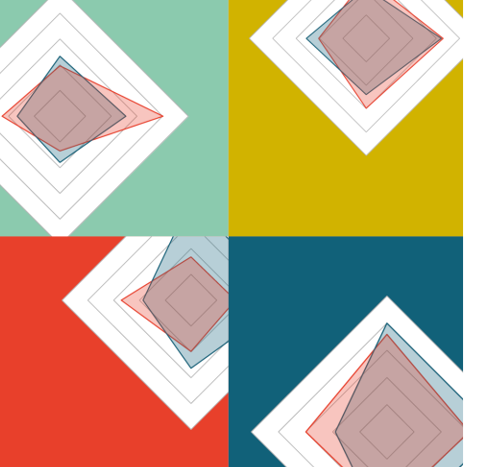

Honing the “China Reflex” that allows European governments to anticipate and respond
 | This analysis is part of the MERICS Europe-China Resilience Audit. For detailed country profiles and further analyses, visit the project's landing page. |
While many capitals still lack a rigorous approach to building administrative capacity on China, Grzegorz Stec argues they have ample region-wide expertise to draw on.
Getting China right is increasingly crucial for effective policymaking. European countries need to strengthen the China expertise of their public administrations if they want to effectively navigate the intensifying trade disputes and geopolitical frictions with Beijing. But the MERICS Europe-China Resilience Audit – an EU Horizon-funded tracker of vulnerabilities and resilience-building– shows that most of the eleven governments confidentially surveyed still lack dedicated resources and a systematic approach to building China capacity.
Our survey of the Czech Republic, France, Germany, Hungary, Italy, Lithuania, Netherlands, Poland, Spain, Sweden and the EU-alumnus UK shows that most administrations are devoting very limited resources to improving their ability to read Beijing’s motivations, anticipating its likely reactions, and coordinating effective responses. These capabilities are particularly critical when facing unexpected moves – as illustrated in April 2025, when China suddenly imposed export restrictions on rare earths following US tariff hikes. The restrictions affected both European and American companies.
To prevent a repeat of the hectic scramble that ensued in spring, European governments should first strengthen their in-house expertise and develop a “China-reflex” through broad foundational training, guidelines to align China-related approaches across ministries, and the development of specialized expertise for high-stakes policy areas like defense, cybersecurity, or artificial intelligence. Second, they should establish clear knowledge-sharing channels that allow government officials to request and exchange timely and secure China analysis and insights from trusted external sources such as think tanks, academia, business and civil society communities. Third, European countries should be able to tap into EU-level and leading national China networks rather than duplicating efforts – a new level of co-operation among allies that could be of particular value to small states with limited resources.
Beyond its sobering main findings, the Resilience Audit highlighted several instances of governments already taking steps to improve their China capabilities. While these approaches vary in scale and ambition, they provide valuable lessons that could be adopted or adapted by other European states.
Improving in-house expertise through alignment and training
Germany, the Netherlands and Sweden already had publicly communicated national strategies and guidelines in place to establish a common approach to China across their national governments. The drafting of Germany’s 2023 Strategy on China, the 2019 Netherlands-China: A new balance, Sweden’s 2019 Approach to matters relating to China as well as the UK’s 2025 China Audit, a structured assessment of bilateral relation, all forced the branches of each government to integrate China into operations, improving administration-wide awareness and alignment of actions.
Another option, even more impactful than creating strategies, is to establish dedicated coordination mechanisms. The Dutch Ministry of Foreign Affairs, for example, has appointed a Coordinator on China and Economic Security to align ministerial approaches, ensure consistency in Dutch positions within the EU and NATO, and identify emerging patterns in China’s engagement.
Such efforts should be complemented by training programs, such as the UK’s Great Britain-China Centre, which offers regular courses sponsored by the Foreign, Commonwealth & Development Office, and by secondment schemes, like one run by the French Ministry of Foreign Affairs in collaboration with MERICS.
Developing resilient knowledge-sharing channels
As government officials usually serve fixed terms or change following elections, some European capitals have established external hubs of China expertise to provide successive administrations with unbiased advice. For example, the Swedish government in 2021 established the Swedish National China Centre with the Swedish Institute of International Affairs (NKK), the Polish government funds the Centre for Eastern Studies and the Polish Institute of International Affairs, and the German government co-funds MERICS.
One highly resource-efficient way to foster such exchanges is through fellowship schemes that embed outside experts in government offices, enabling them to contribute directly to policy work and help develop internal China expertise. For example, the office of the President of the European Commission in 2023 selected a group of experts to provide confidential advice and support the work of Ursula von der Leyen’s closest officials.
Leveraging cooperation through knowledge networks
Some governments have also pooled national resources to create single sources of expertise and reduce duplication. This approach is a cost-efficient and flexible, allowing structures to be scaled either on the level of institutions or networks of individual China researchers. The Dutch China Knowledge Network (CKN), for example, links at least eight institutions, including the Clingendael Institute think tank and university-based centers like the Leiden Asia Centre. Coordinated by the Dutch foreign ministry, the network helps to guide national China research.
Such networks also operate on transnational level with initiatives such as European Think-tank Network on China and CHERN – China in Europe Network. But some are geared specifically for supporting policymakers as EU-Commission funded EU-KNOC or the European China Knowledge Network (E-CKN) launched in 2025 by CKN, MERICS, and NKK partnered with the European Union Institute for Security Studies (EUISS) to launch the to connect decision-makers, experts and academics across the EU to provide European stakeholders with China-relevant insights. Such transnational networks can generate considerable economies of scale and enable smaller countries to leverage the resources of Europe’s larger ones.
Many European governments may be struggling with China capacity building initiatives, as resources are constrained by higher defense spending and the urgent geopolitical challenges posed by Russia’s war against Ukraine or the Trump administration’s unconventionality. But the models outlined above offer a spectrum of options of varying resource intensity, allowing them to adopt and adapt measures based on national priorities – whether addressing a specific immediate challenge or developing broader, long-term China expertise.
Expanding understanding of the China-related challenges is a critical first step for European governments to maintain political momentum in building resilience against China and to be positioned to make informed trade-offs – such as balancing the economic benefits and security risks of Chinese investments, preparing for Beijing’s coercive moves like the restrictions on rare-earths or estimating the costs of assertive actions targeting China. While the EU and European national governments still have work to do, their focus should be on connecting existing expertise and applying lessons from initiatives launched over the past five years.

This analysis was made possible with support from the “Dealing with a Resurgent China” (DWARC) project, which has received funding from the European Union’s Horizon Europe research and innovation programme under grant agreement number 101061700.
Views and opinions expressed are however those of the author(s) only and do not necessarily reflect those of the European Union. Neither the European Union nor the granting authority can be held responsible for them.

